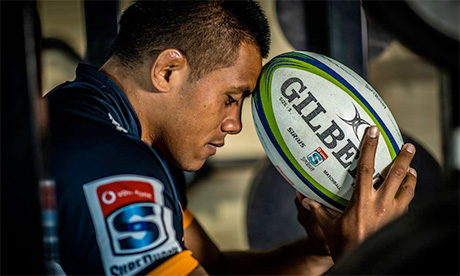The state of our national game, and what is best for its future, has generated a lot of recent debate.
But there are some contributing factors that might not have had the attention they deserve.
The demography of New Zealand is changing, with major implications for rugby, especially for player participation.
The impacts of immigration and a growing diversity help explain why rugby is losing ground as a sport in Auckland and other cities where immigrants and ethnic minorities reside, but there is a very different reason in the regions.
The numbers playing rugby nationally still look strong, but the arrival and success of girls’ and women’s rugby has tended to mask the challenges of maintaining a player base.
Take secondary schools. In 2000, rugby still dominated school sports, with nearly 31,000 players. By 2020, there were 6500 fewer players, a drop of 20 per cent, and the sport was third in the numbers playing, while rugby sevens had grown and involved 5000 players.
In the same period, basketball had grown by almost 50 per cent to become the second most popular sport, while the participation in football had grown to nearly 21,000, supplemented by futsal (7000 players).
By 2020, netball had dropped slightly in numbers, but was the most popular sport, while cricket had collapsed (nearly 50 per cent fewer were playing in 2020 than in 2000).
These figures only reflect the numbers who played a sport for their school. Those who play the sport informally or non-competitively (neighbourhood basketball, badminton) or play for a club rather than a school (football) are not included.
Rugby too rough for newcomers?
What’s happening? Rugby has to compete in a crowded leisure landscape, and there are reputational issues associated with the physicality of the game.
But the changing composition of the New Zealand population is also playing its part.
Immigration has been a major factor in the past 20 years, especially since 2013. We have added about 400,000 to the population from net migration gains – and these communities are not playing rugby. Look at Auckland.
The city is home to a third of all New Zealanders, and more than 40 per cent are immigrants. Thirty per cent are members of Asian communities.
These communities are especially apparent in the school-age population. And they are contributing to the decline in rugby numbers. Rugby participation at secondary schools experienced a 29 per cent drop in one two-year period alone, and a 20 per cent drop in the number of teams.
This is not simply confined to Auckland. In one large Wellington school with 1700 students, there were three rugby teams in 2020.
By 2018, rugby was not even in the top 20 sporting and leisure activities among all Aucklanders surveyed. Football, basketball, golf, table tennis and tennis were.
A decade ago, we were asked to explore the question of “why?”. The answers were relatively straightforward: these new immigrant and ethnic minority communities placed much more emphasis on education, they had no prior experience, knowledge or interest in sports like rugby, and they were concerned at how “rough” the sport was.
In the smaller regional centres and rural areas, the numbers available to play rugby are in decline. The predominant reason is the ageing of these populations. In large parts of New Zealand’s hinterland, the proportion aged over 65 now outnumbers those aged 15 or less.
There are a lot of ex-rugby players and supporters – but only a small pool of those interested in the sport or able to play. One indicator of population stagnation or decline has been the closure of almost 200 state schools in regional New Zealand since 2000.
In the Waitaki district, home of Richie McCaw, 14 schools have closed since 1990, while a number of others have been amalgamated. Where do the rugby players come from in these districts?
The combination of fewer school-age children and young adult out-migration, combined with the arrival of migrant workers, is simply not providing a sustainable player base.
A glance at the traditional print media or Sky TV, with their extensive coverage of rugby, tends to mask what is happening, both in participation and interest. Have a look online, or at the media that serve ethnic minorities in New Zealand, and a very different picture emerges of what sports attract interest and participation.
A lot has been made about the investment in grassroots and regional rugby that might be possible with the injection of private equity funds.
But surely there is an equally important issue that derives from the changing demography of this country. New Zealand Rugby is aware of the issues but has struggled to engage a younger and more ethnically diverse New Zealand.
- Distinguished Professor Paul Spoonley is a sociologist at Massey University’s College of Humanities and Social Sciences and the author of The New New Zealand. Facing Demographic Disruption (Massey University Press, 2020).
- First published by Stuff. Republished with permission.
